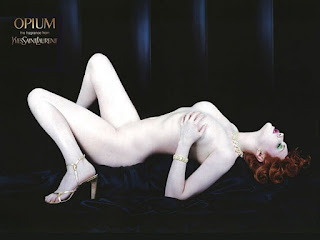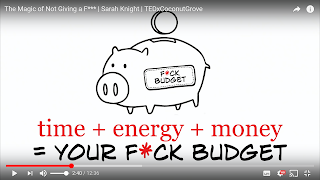MY FCP PROCESS REFLECTION
Now that I have finished my first term of studying Fashion Communication and Promotion (FCP), I wanted to reflect on the FCP process I have been learning and practicing throughout; we call it 'looking through the FCP lens'. The process is a strategic way of producing effective and successful outcomes to briefs, including all of the four key stages consecutively throughout: context, ideas, concepts and outcomes. I have used this several times over the past few months of studying my course and found that it is indeed very useful and important to know as someone who is being introduced to this industry. Along the way of this process we are challenged in multiple areas such as teamwork skills, time management, reflective practice, creative and academic engagement and attendance, which all combine to create our autonomy level as individual students within one dynamic and collaborative system.
CONTEXT
The context stage involves gathering primary and secondary research which informs you on the topic or theme you are focusing on from a wider, global perspective of the fashion landscape. This enables you to prepare for the Ideas and concepts stages by understanding your topic or theme in depth. What I like about this stage is the discovery, as it is usually very interesting to indulge into a topic you enjoy and have such an open and loose starting point. I like that the fashion landscape is so broad as you can take your research in any direction you like, although collecting primary research for this stage can often be quite difficult and involves a lot of planning and preparation.
IDEAS
The ideas stage involves utilising the research collected during the contexts stage to produce unique and effective ideas which can be developed into more specific concepts in the next stage and then transformed into the outcome. This stage involves your creative readiness, ripeness, knowledge, competitiveness, curiosity, connections and imagination. Within this stage you must pay a lot of detail to your target consumer audience, brand identity etc, to ensure your idea is on track. What I enjoy about this stage is being able to take risks and have fun with your ideas, although it can be difficult to come up with an idea instantly, especially when working solo, so it involves patience, time and a lot of thinking.
CONCEPTS
The concepts stage involves refining and interpreting your idea creatively to produce a concept for your final outcome. During this stage you will undergo analysis, visual research, and look into design solutions. What I most enjoy about this stage is getting excited and even more creative with your original idea and transforming into something further. However, this stage can be difficult in terms of being cohesive and consistent with themes or genres, so it's important to go back and refine your concepts over and over until the concept is solid.
OUTCOMES
The outcomes stage involves planning in terms of communications and route to consumer, and making and creating to deliver to an audience. The outcome is the finalised execution, therefore this stage effectively is the production of the entire thing you have worked towards. What I enjoy about this stage is bringing your ideas to life, enabling you to reflect on the work you've inputted along the way. However, as this stage is the final one, it is too late to return and make changes, which can make you feel negative about your work at times when you aren't completely satisfied with what you've created, but also prepares you better for next time by highlighting where you went wrong.
CONTEXT
The context stage involves gathering primary and secondary research which informs you on the topic or theme you are focusing on from a wider, global perspective of the fashion landscape. This enables you to prepare for the Ideas and concepts stages by understanding your topic or theme in depth. What I like about this stage is the discovery, as it is usually very interesting to indulge into a topic you enjoy and have such an open and loose starting point. I like that the fashion landscape is so broad as you can take your research in any direction you like, although collecting primary research for this stage can often be quite difficult and involves a lot of planning and preparation.
IDEAS
The ideas stage involves utilising the research collected during the contexts stage to produce unique and effective ideas which can be developed into more specific concepts in the next stage and then transformed into the outcome. This stage involves your creative readiness, ripeness, knowledge, competitiveness, curiosity, connections and imagination. Within this stage you must pay a lot of detail to your target consumer audience, brand identity etc, to ensure your idea is on track. What I enjoy about this stage is being able to take risks and have fun with your ideas, although it can be difficult to come up with an idea instantly, especially when working solo, so it involves patience, time and a lot of thinking.
CONCEPTS
The concepts stage involves refining and interpreting your idea creatively to produce a concept for your final outcome. During this stage you will undergo analysis, visual research, and look into design solutions. What I most enjoy about this stage is getting excited and even more creative with your original idea and transforming into something further. However, this stage can be difficult in terms of being cohesive and consistent with themes or genres, so it's important to go back and refine your concepts over and over until the concept is solid.
OUTCOMES
The outcomes stage involves planning in terms of communications and route to consumer, and making and creating to deliver to an audience. The outcome is the finalised execution, therefore this stage effectively is the production of the entire thing you have worked towards. What I enjoy about this stage is bringing your ideas to life, enabling you to reflect on the work you've inputted along the way. However, as this stage is the final one, it is too late to return and make changes, which can make you feel negative about your work at times when you aren't completely satisfied with what you've created, but also prepares you better for next time by highlighting where you went wrong.



Comments
Post a Comment